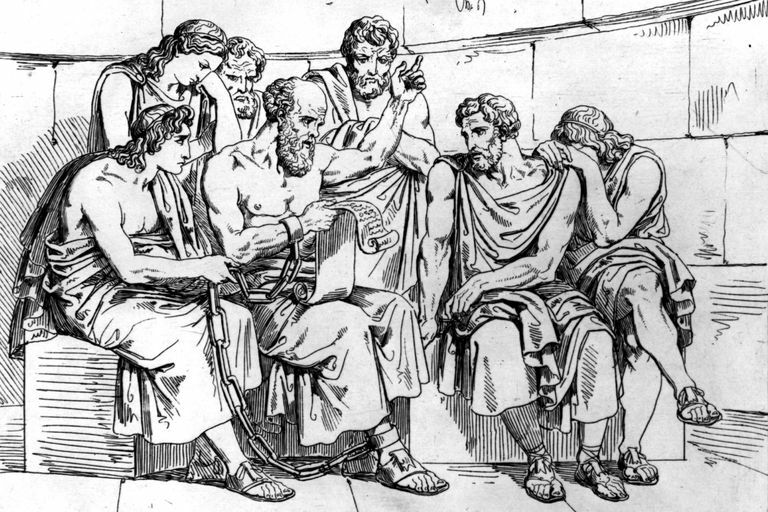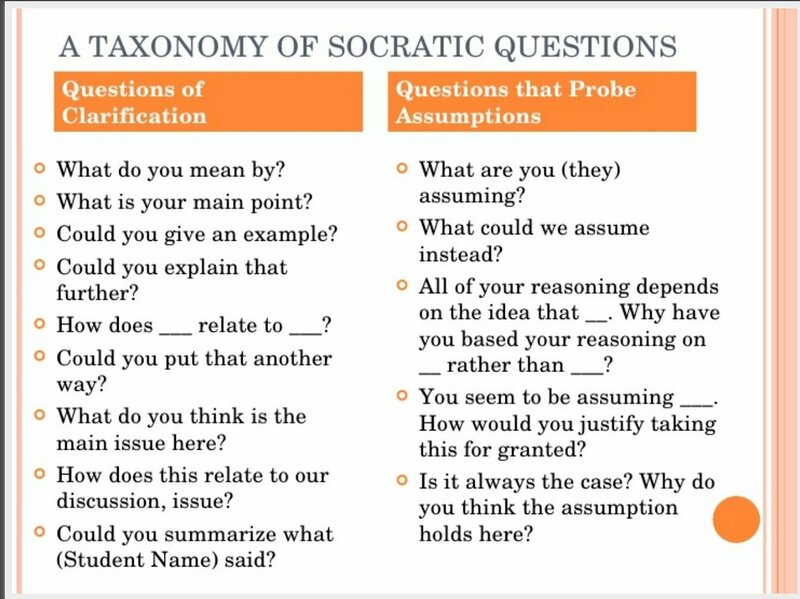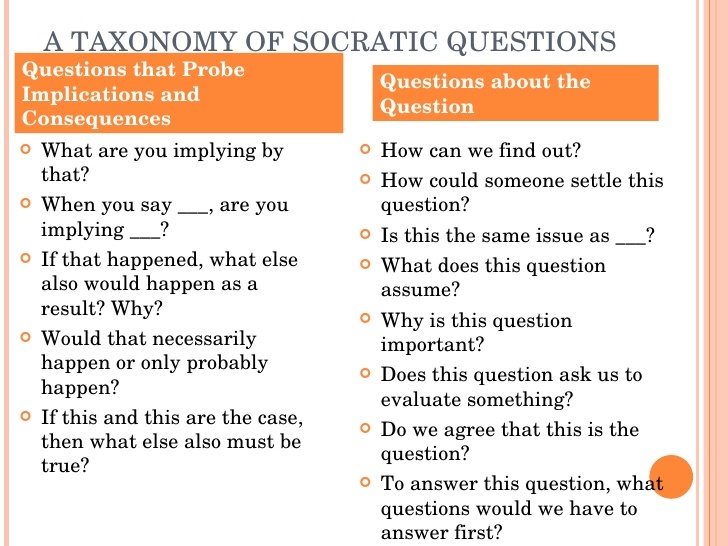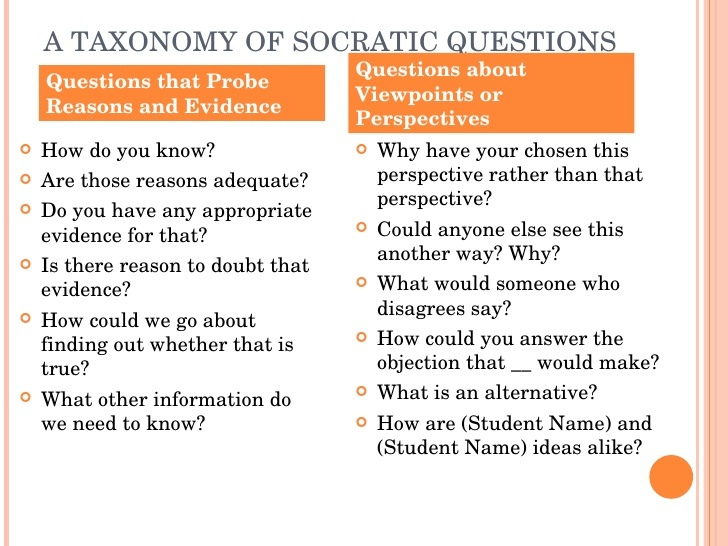e-Learning Ecologies MOOC’s Updates
Collaborative intelligence concept: Socratic dialogue: basics in the context of classrooms
The Method -
The method of Socratic inquiry is emphatically not "teaching" in the predictable and conventional sense of the word. The leader of Socratic inquiry is not the purveyor of knowledge, filling the empty minds of largely passive students with facts and truths acquired through years of study – he is not "the sage on the stage." In the Socratic method, there are no lectures and no need for rote memorization. Neither is the Socratic teacher "the guide on the side."
The classroom experience in the Socratic method becomes a shared dialogue between teacher and students in which both are responsible for pushing the dialogue forward through questioning. The "teacher," or leader of the dialogue, asks probing questions in an effort to expose the values and beliefs which frame and support the thoughts and statements of the participants in the inquiry. The students ask questions as well, both of the teacher and each other.
The inquiry develops in an interactive fashion, and the teacher is as much a partaker as a guide of the discussion. Furthermore, the inquiry is open-ended. There is no pre-determined argument or terminus to which the teacher attempts to lead the students. Without a lesson plan, the group follows the dialogue where it goes.
Essential components -
1. Questioning, through which, first, the participants attempt to identify and then to guard their moral insights about the world which undergird their ways of life. Socratic inquiry deals not with producing a recitation of facts, or a questioning of the logic of various and sundry abstractions which are held up for comparison, but demands rather than the participants account for themselves, their thoughts, actions, and beliefs.
2. Focus on moral education, as the subject of inquiry is not what is thought or said about the world in general, but what each participant thinks or says about the world. The goal is not to consider depersonalized propositions and abstractions, but to probe the underlying values and beliefs of each inquirer.
The negation of one's beliefs about how best to live delivers an embedded judgment that, to interpret Rilke's poem, "The Archaic Torso of Apollo" (1908), you must change your life. Socrates is famous for saying "the unexamined life is not worth living." Equally true, though less appreciated, is the fact that the unlived life is not worth examining.
3. A classroom environment characterized by productive discomfort, because in the best of Socratic dialogues, there is real tension among the speakers. The stakes are high. Will one be called on, be called to account?
4. Better demonstrates complexity, difficulty, and uncertainty than provoking facts about the world
Bertrand Russell once wrote, "As usual in philosophy, the first difficulty is to see that the problem is difficult. If you say to a person untrained in philosophy, 'How do you know I have two eyes?' he or she will reply, 'What a silly question! I can see you have.' It is not to be supposed that, when our inquiry is finished, we shall have arrived at anything radically different from this un-philosophical position. What will have happened will be that we shall have come to see a complicated structure where we thought everything was simple, that we shall have become aware of the penumbra of uncertainty surrounding the situations which inspire no doubt, that we shall find doubt more frequently justified than we supposed, and that even the most plausible premises will have shown themselves capable of yielding implausible conclusions. The net result is to substitute articulate hesitation for inarticulate certainty."
Here's a fun video you could watch to further understand the entire concept: https://www.youtube.com/watch?v=_CPLu3qCbSU
The Socratic Teacher -
- is not the opponent in an argument, nor is s/he someone who always plays devil's advocate, saying essentially: "If you affirm it, I deny it. If you deny it, I affirm it." [This happens sometimes, but not as a matter of pedagogical principle]
- neither does possess all the knowledge or the answers, nor is s/he "just testing" the students.
- participates in the dialogue and must always be open to learning something her/himself.
- does not seek deference to her/his authority. Nor does s/he creates a cult of personality by seeming aloof, cold, and distant.
- knows her/his students' names, and the students know each other's names.
- Aims for productive discomfort - NOT panic and intimidation. The aim is not to strike fear in the hearts of students so that they come prepared to class, but to strike fear in the hearts of students that they either cannot articulate clearly the values that guide their lives, or that their values and beliefs do not withstand scrutiny.
REFERENCES:






